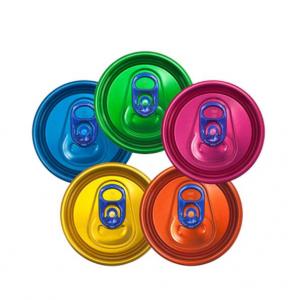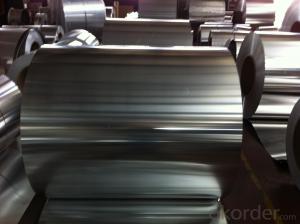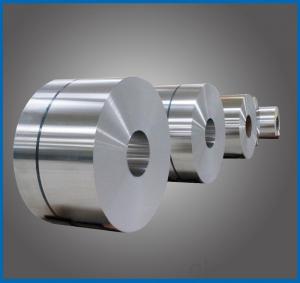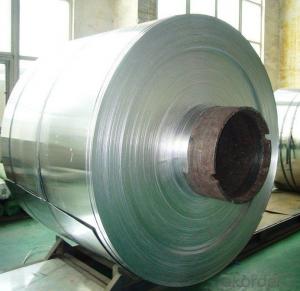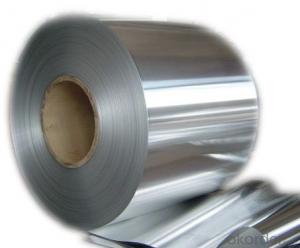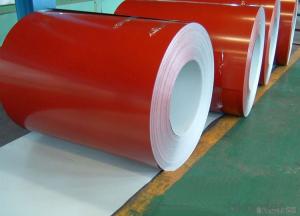Coated Aluminium Coil for Aluminium Can End
- Loading Port:
- Shanghai
- Payment Terms:
- TT or LC
- Min Order Qty:
- 5 m.t.
- Supply Capability:
- 5000 m.t./month
OKorder Service Pledge
OKorder Financial Service
You Might Also Like
1.Specification
ALLOY:AA5182,AA5052
TEMPER:H48,H49
THICKNESS:0.26-0.29mm
WIDTH:60-1800mm(end&tab stock)
PAINT:PPG OR VALSPAR
LUBRICATION:HENKEL
Special specification is available on customer's requirement
2.Description
Coating Systems: Internationally recognised coil coating systems complying with FDA and other industry regulations are available to meet the requirements for beer, tea, carbonated soft drink and other beverages. These include:
A.Water based epoxy resin system
B.Solvent based epoxy resin system
C.Solvent based polyester resin system
D.Coatings are available for post lube or non-post lube applications.
E.Coloured end stock includes a variety of gold shades as well as a limited range of double coated can end to suit specific customer requirements
3.Pictures
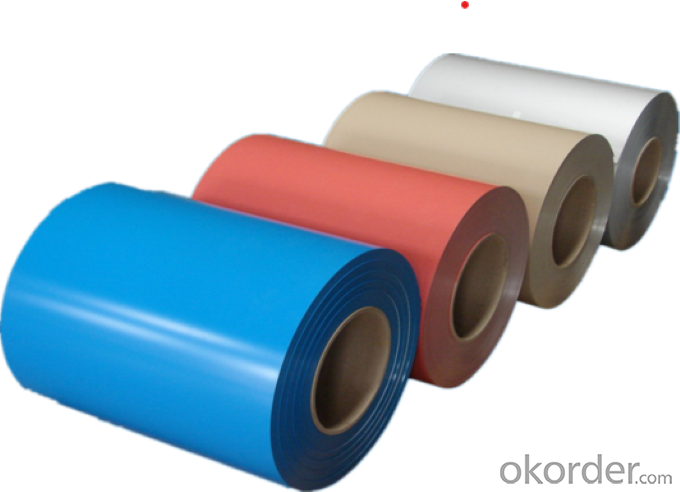
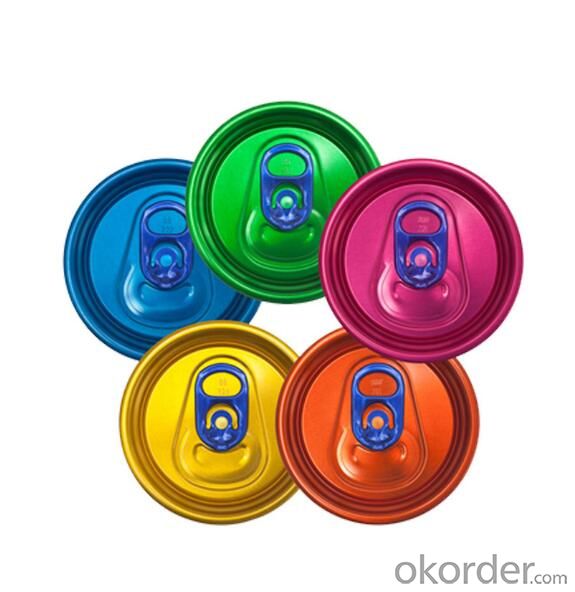
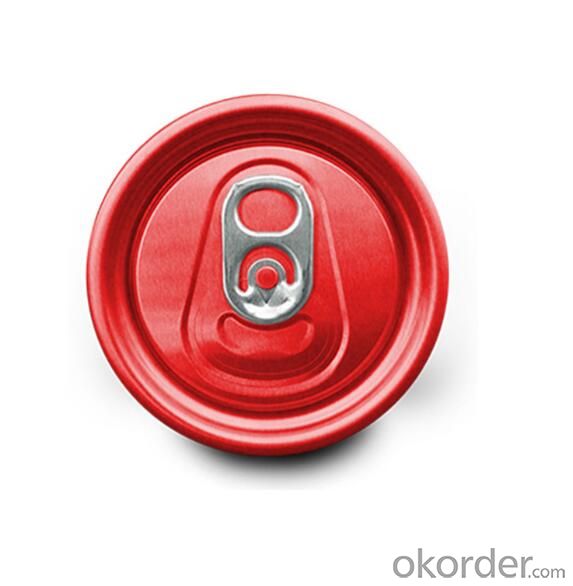
5.Certificates
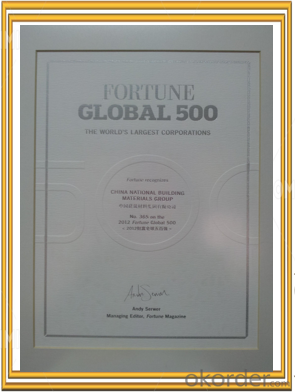
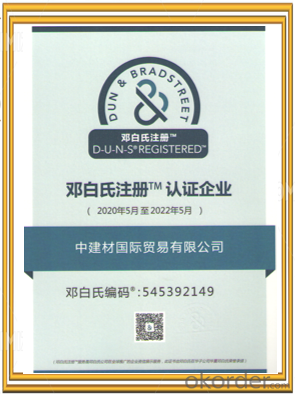
- Q:I know that Aluminum is a metal, and it's corrosive, but I've been wondering about how Aluminum Foil is created. Is it the same as the metal? Just pounded down? or is it a mixture of different elements?
- It is made by rolling an aluminum block thinner and thinner. Metal foil, such as tin foil had been around for years. The first plant designed for rolling aluminum foil was opened in 1910. NASA was not in existence then. It appears the inventor was: Hans Christian Oersted Year Invented: 1825 P.S. Aluminum is not corrosive. corrosive means it corrodes other things (as acid would). It does corrode. It is also the most reactive metal. It is oxidized immediately upon exposure to air - why it is difficult to solder. The aluminum oxide is not whetted by solder. Aluminum oxide is a ceramic, called Alumina. Anodized aluminum has has a thick layer of aluminum oxide formed on its surface
- Q:Are aluminum coils prone to corrosion?
- Aluminum coils have a tendency to corrode, as aluminum is a reactive metal that readily develops a protective oxide layer upon contact with oxygen. Nevertheless, certain environmental elements like moisture, salt, or corrosive substances can compromise this oxide layer. Consequently, corrosion may gradually manifest on the surface of aluminum coils. To mitigate this risk, regular maintenance and appropriate care, such as cleaning and applying protective coatings, can be beneficial.
- Q:How much is one ton of aluminum coil?
- The price of aluminum sheet is calculated according to the price of aluminum ingot + processing fee (aluminum plate state), and the specific price is also different according to the size and size of aluminum sheet.If you have any questions, please ask. I hope to help you.
- Q:Can aluminum coils be used in food packaging?
- Yes, aluminum coils can be used in food packaging. Aluminum is a popular choice for food packaging due to its excellent barrier properties, lightweight nature, and ability to maintain the freshness and quality of food products. It is widely used in various forms, including coils, for packaging food items like beverages, snacks, and canned goods.
- Q:Can aluminum coils be used in the manufacturing of furniture?
- Yes, aluminum coils can be used in the manufacturing of furniture. Aluminum is a versatile and lightweight material that is often used in the construction of modern furniture. It offers durability, resistance to corrosion, and can be easily molded into various shapes and designs. Additionally, aluminum coils can be coated or finished in different colors and textures to enhance the aesthetic appeal of the furniture.
- Q:Can aluminum coils be used in the production of railway tracks?
- The usage of aluminum coils in the production of railway tracks is not possible. Typically, railway tracks are manufactured using steel due to multiple reasons. Steel is renowned for its strength and durability, enabling it to endure the heavy loads and constant wear and tear caused by train traffic. Additionally, it exhibits exceptional heat resistance and can maintain its structural integrity even when exposed to high temperatures. This attribute holds significant importance for tracks that encounter friction and heat generated by moving trains. Conversely, aluminum possesses a lighter weight and lower strength compared to steel, along with inferior heat resistance. While aluminum may find application in other elements of railway infrastructure, such as electrical wires or specific train components, it is unsuitable for the actual production of railway tracks.
- Q:What are the different edge treatments available for aluminum coils?
- Some of the different edge treatments available for aluminum coils include mill finish, edge trim, deburred edge, rounded edge, and hemmed edge.
- Q:What are the typical mechanical properties of aluminum coils?
- The typical mechanical properties of aluminum coils include high strength, good formability, excellent corrosion resistance, low density, and high thermal conductivity. Additionally, aluminum coils often have good electrical conductivity and are easily machinable.
- Q:How are aluminum coils used in the production of sporting goods?
- Aluminum coils are used in the production of sporting goods primarily for their lightweight and durable properties. They are commonly used in the manufacturing of sports equipment such as baseball bats, tennis rackets, and bicycles. The coils are shaped, formed, and molded into the desired product, providing strength and flexibility while reducing overall weight. This allows athletes to have better control, enhanced performance, and reduced fatigue during sports activities.
- Q:What is the tensile strength of an average aluminum coil?
- The specific alloy and temper of aluminum can cause variations in the tensile strength of an average aluminum coil. On average, aluminum coils possess a tensile strength between 13,000 and 30,000 pounds per square inch (psi). It is worth noting that this range is an approximate estimation and the actual tensile strength can be affected by factors like the manufacturing process, alloy composition, and any heat treatments administered to the aluminum.
1. Manufacturer Overview |
|
|---|---|
| Location | |
| Year Established | |
| Annual Output Value | |
| Main Markets | |
| Company Certifications | |
2. Manufacturer Certificates |
|
|---|---|
| a) Certification Name | |
| Range | |
| Reference | |
| Validity Period | |
3. Manufacturer Capability |
|
|---|---|
| a)Trade Capacity | |
| Nearest Port | |
| Export Percentage | |
| No.of Employees in Trade Department | |
| Language Spoken: | |
| b)Factory Information | |
| Factory Size: | |
| No. of Production Lines | |
| Contract Manufacturing | |
| Product Price Range | |
Send your message to us
Coated Aluminium Coil for Aluminium Can End
- Loading Port:
- Shanghai
- Payment Terms:
- TT or LC
- Min Order Qty:
- 5 m.t.
- Supply Capability:
- 5000 m.t./month
OKorder Service Pledge
OKorder Financial Service
Similar products
New products
Hot products
Hot Searches
Related keywords
